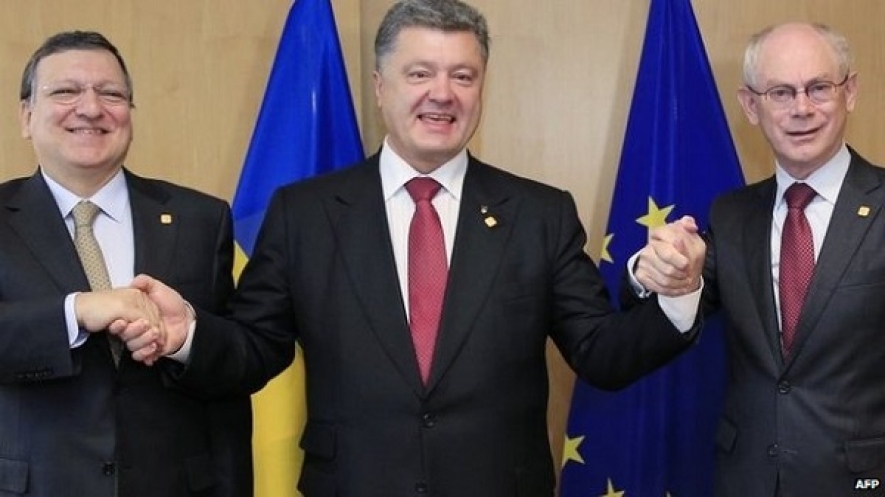It was the decision of his pro—Moscow predecessor, Viktor Yanukovych, to back out of the same EU association agreement in November that touched off massive protests in Ukraine that eventually led to Yanukovych’s flight abroad, Russia’s annexation of the Crimean Peninsula and the ongoing tensions between Russia and Ukraine.
Later Friday, EU heads of state and government were expected to consider whether to ramp up sanctions against Russia over its conduct toward Ukraine.
Before the signing ceremony, Poroshenko brandished a commemorative pen inscribed with the date of EU’s Vilnius summit where Yanukovych balked at approving the agreement.
“Historic events are unavoidable,” he said.
European Commission experts estimate implementation of the deal is expected to boost Ukraine’s national income by around 1.2 billion euros ($1.6 billion) a year. EU Enlargement Commission Stefan Fule said the trade bloc has made clear to Moscow its willingness to demonstrate that Russian economic interests will not be harmed.
Perhaps more important than the trade clauses is an accompanying 10—year plan for Ukraine to adopt EU product regulations. Such rules ease the way for international trade beyond Europe.
The deal also demands that Ukraine change the way it does business. Adopting EU rules on government contracts, competition policy and the copyright for ideas and inventions should improve the economy by making it more investor—friendly and reducing corruption.(KH/SI)




















